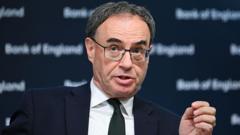80 Years Later, Both Trump and Putin Brand WWII a Victory

Eighty years after the Allied powers accepted Germany’s unconditional surrender and ended the fighting in Europe, world leaders are now fighting about who did the most for victory. President Donald Trump declared May 8 as a national holiday to commemorate American victory in WWII because, as he wrote in one social media post, “nobody was close to us in terms of strength, bravery, or military brilliance.” But in Kyiv, my Ukrainian aunt Vita immediately thought of Vladimir Putin.
The Russian President has long made the veneration of World War II the central tenet of Russia’s national idea. Starting from 2010, he centralized Russia’s sole role in “saving the world from fascism,” while simultaneously declaring that Russia would have defeated Nazi Germany even without Ukraine.
My aunt couldn’t believe Trump was usurping the war from a country that bore such a huge brunt of Hitler’s invasion. Though it can be difficult to measure, according to Western, Soviet, and Ukrainian historians, between 17% and 25% of Ukraine’s population was killed during World War II. The fact that she—and I for that matter—exist today is quite miraculous.
Vita’s Ukrainian mother (my grandmother) survived as an orphan for two years under German occupation and barely evaded being carted off to Germany to work as a forced laborer. My grandfather, a Jewish soldier from Ukraine, was a prisoner of war and a forced laborer in Nazi Germany, where he managed to evade Hitler’s deadly antisemitism through a whole lot of luck and survivor’s cunning. When he returned home to Soviet Ukraine, he realized Stalin was intent on punishing those who had, in his opinion, surrendered to the enemy and “sat out the war.” For the rest of his life, Grandpa kept what happened to him hidden from his family because of fear and shame. Unaware of his true story, my family celebrated Victory Day at home with flowers and a small feast every year until my grandfather passed away.
In 2014, war broke out in the Donbas where my family lived, and Putin’s messaging around Victory Day became much more bellicose, making my family reject the holiday ever since.
Russian propaganda weaponized the memory of World War II, accusing Ukraine of being overtaken by Nazis and threatening the West not to mess with Mother Russia, lest it repeats its victory. As fighting broke out on the streets of her city, Donetsk, my aunt Vita walked by posters that declared “Our grandfathers won victory. We’ll do it again if needed” and cars carrying bumper stickers of St. George ribbon, a symbol associated with victory and Russian militarism.
Ukraine’s government immediately responded by changing its own approach to commemorating Victory Day. In 2015, Ukraine began officially observing May 8—a day earlier than the Russians—as the Day of Remembrance and Reconciliation, shifting the conversation away from that of victory. The St. George ribbon was replaced with the red poppy symbol, used in the UK, Italy, and other countries. A year after Russia’s full-scale invasion in 2023, Ukrainian President Volodymyr Zelenskyy signed a law establishing May 8 as the official Day of Victory over Nazism in World War II, aligning it definitively with Europe and claiming Ukraine’s own right to history. And yet, unlike Moscow’s flashy military parades, Ukraine focused more on memorials, concerts, and educational programs. Their slogan became “Never again”.
Now, it appears that Trump also wants to jump on this bandwagon. “We are going to start celebrating our victories again!” he declared before establishing May 8 as the newest national holiday in the U.S.
But if there is one thing that growing Russian militarism has shown it’s that the focus on one’s victoriousness can easily transform into a militant arrogance and, eventually, an actual war that perpetrates the exact same crimes that it purports to have fought.
Reports have emerged of Russian prisons where captured civilians are used as forced laborers and prisoners of war are tortured and starved in the same way my grandfather and millions of other captives had been in Germany. But simultaneously, there is no place where the 80th anniversary of the end of the last world war is more pompously celebrated than in front of the Kremlin.
Vita, who was a teen when the first celebration of Victory Day was conducted in the USSR in 1965, tells me “The end of the war in Europe should be a day to cry about the dead, not be happy about victory.”
Today, there are fewer and fewer WWII veterans left alive to tell us what that war was really like. But when I researched my grandfather’s story for a novel I wrote based on it, I came across many witness accounts describing how they made it alive to victory day. And whether they were soldiers, prisoners, forced laborers, or civilians, they often mentioned crying on May 8, 1945 when they heard that Germany had capitulated. They didn’t cry because they won. They cried because the worst war in human history was finally over.

Visit the Arctic vault holding back-ups of great works

Inside the secretive world of Zara

'Peace Be With You': Pope Leo XIV Steps Onto the World Stage

UK must 'do everything' to rebuild trade with EU, says Bank boss
U.S. plans to spend billions to update air-traffic control system
Transportation Secretary Sean Duffy unveiled a plan to modernize the aging air traffic control system, addressing airport congestion, flight delays and safety.